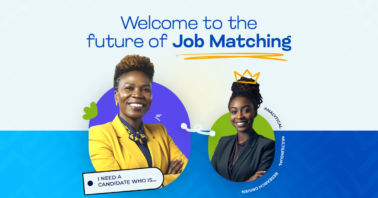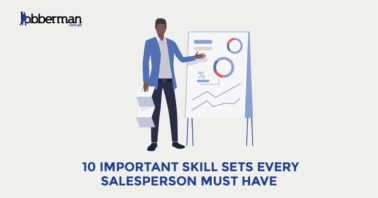The morning air in the office was thick with unspoken tension as Eva breezed in, her vibrant red scarf draped dramatically over her shoulder. “Good morning, everyone!” she greeted cheerfully, oblivious to the side-eyes her entrance was gathering.
Charles, seated at his desk with a mug of steaming coffee, shook his head subtly. “Ah, Eva paa, it’s too early for campaign colors,” he muttered under his breath.
This was Dynamic Concepts, a mid-sized marketing agency in Accra, where conversations usually revolved around clients, strategies, and the latest trends in advertising. But as December 7th loomed closer, the usual buzz had shifted to debates about manifestos, candidates, and, of course, political allegiances.
The “Political Room” Drama
It all started a week ago when Efo Selorm, the quiet IT guy, casually asked, “So, who do you think will win the elections?” during lunch. What followed was a spirited debate that turned the office cafeteria into a mini-political forum.
“I’m Team NPP all the way!” declared Eva, her voice rising with excitement. “They’ve done so much in infrastructural development!”
“Ei, Eva, are you serious? And you call those achievements? Look, NDC has always been for the people,” Charles retorted, his voice laced with skepticism.
Selorm, trying to mediate, said, “Chale, let’s focus on policies, not parties. That’s the problem with Ghanaians; we make it personal.”
But it was too late. Lines had been drawn, and suddenly, the office felt like an elections hub.
Allies and Awkwardness
Over the next few days, alliances began forming along political lines. Eva, always the social butterfly, found herself subtly iced out by some colleagues who felt she was “too loud” about her political stance. Charles, on the other hand, suddenly had more people visiting his desk to share their “thoughts on the economy.”
“I don’t know why everyone is taking this so seriously,” Selorm confided to Adwoa, the receptionist, who had wisely stayed neutral. “Chale, people are unfriending each other on Facebook over this politics thing.”
Adwoa, ever the voice of reason, shrugged. “It’s because people forget that after December 7, we’ll all still have to come to work. Better keep your opinions to yourself, la.”
The Team Bonding Test
The final straw came during a team brainstorming session for a major client campaign. Eva, leading the session, presented an idea only for Charles to challenge every detail she suggested.
“Charles, why are you always opposing me these days?” she asked, visibly frustrated.
“Me? Opposing? Maybe you just don’t like constructive criticism,” he replied, his tone sharp.
Their manager, Mr. Murphy, had to step in. “Team, let’s focus on the project. Politics ends at the office door. We’re here to work, not campaign.”
After Mr. Murphy’s intervention, the office slowly returned to normal or so it seemed. But the election fever couldn’t be buried for long, especially in Ghana, where every corner buzzed with campaign jingles.
It started when Adwoa, the receptionist, was humming a catchy tune as she handed over the morning mail. Charles, ever the joker, caught on immediately.
“Ah, Adwoa, why are you humming the NDC song like that? Are you trying to convert us in secret?” he teased, laughing.
Adwoa rolled her eyes but grinned. “Oh, please! Who doesn’t like ‘The Nation Builder ana wose, Ode Asempa n’aba ooo? It’s a hit, and you know it!”
Selorm chuckled from the IT desk. “True, true. But don’t forget, campaign songs don’t win elections. Remember the last one? The NPP came with a serious message, and the NDC was jamming. Who won? The nicest song doesn’t mean nicest votes!”
Debate at the Coffee Machine
By mid-morning, the coffee machine had become a hotspot for impromptu debates.
The focus? The power of campaign songs.
“I honestly think songs make a difference,” Clara argued as she stirred her tea. “You hear it everywhere on trotro radios, at the market centres, even at funerals, and before you know it, the song is stuck in your head. It influences people subconsciously.”
Charles raised an eyebrow. “Influences how? Chale, we’ve had some bangers from political parties, but the votes don’t follow. Tell me one time the party with the nicest song won.”
Clara paused, pretending to think hard. “Well… it does create hype!”
Selorm jumped in. “Hype doesn’t equal votes. Ghanaians listen, enjoy, and still vote the other way. In fact, if your party’s song is too good, people will just dance, forget their problems, and move on!”
Lunchtime Gossip
During lunch, the conversation hit peak hilarity when Seth, the office prankster, shared his theory.
“Do you know why the party with the nicest song never wins?” he asked, lowering his voice like he was about to reveal Ghana’s best-kept secret.
The table leaned in, curious.
“Because Ghanaians are suspicious!” Seth declared. “If the song is too sweet, they think you’re using it to cover up something. They’ll jam to it, but when they reach the ballot box, they’ll say, ‘Hmmm, let’s be serious, na y3di yen sa, kokromoti power.’”
Everyone burst into laughter.
“So are you saying campaign songs are like a trap?” Clara teased, wiping tears from her eyes.
“Exactly!” Seth replied dramatically. “The sweeter the song, the more cautious Ghanaians become. It’s like a funeral where the wulomei dances too much – something doesn’t add up!”
The Role of Campaign Music
By the time the laughter died down, the group began discussing the actual impact of campaign songs on voting decisions.
“I think it’s about relatability,” Adwoa said. “People like songs that talk about their struggles or give them hope. It’s not just about the rhythm but the message.”
Charles nodded. “True. But sometimes, people just want something to lighten the mood. Elections are stressful, so a good tune helps, even if it doesn’t sway their vote.”
Selorm, ever the realist, added, “Songs may not directly affect votes, but they do keep the party top of mind. You can’t ignore their power completely.”
The Heated Argument and the Unexpected Relief
As the election buzz continued, one afternoon nearly turned chaotic when a heated argument broke out in the break room. Charles and Selorm debated fiercely about which political party had the better campaign strategy.
“It’s not just about the policies, Charles,” Selorm said, his voice rising. “It’s about the grassroots connection. That’s where the votes come from!”
Charles shot back, “Ah, Selorm! Policies are what matter! If you’re just dancing without a plan, what happens after the election?”
The tension in the room was palpable, with team members nervously glancing at one another, unsure if the debate would escalate. Then, out of nowhere, Adwoa, forever the office peacemaker, pulled out her phone, connected it to the office speakers, and hit play on ‘“the nation builder ……..
The lively highlife beat filled the air, catching everyone off guard. For a moment, there was stunned silence. Then Charles burst into laughter.
“Ah, Adwoa, are you trying to distract us or convert us?” he asked, his laughter contagious.
Selorm joined in, shaking his head. “I swear, this song is too good. I can’t argue while it’s playing.”
Within seconds, what had been a heated argument turned into an impromptu karaoke session. Adwoa swayed her hips dramatically, and Charles grabbed a pen to use as a makeshift microphone.
“Campaign time be stress, but this song dier, it be stress relief!” Seth quipped as he joined in, clapping along to the beat.
The entire office erupted into laughter, the earlier tension melting away. For the rest of the afternoon, the mood was lighter, and everyone got back to work with smiles on their faces.
Moral of the Story
This unexpected moment of levity highlighted an important lesson: while political discussions can be divisive, they also have the potential to bring people together if approached the right way. A well-timed joke, song, or act of kindness can diffuse tension and remind colleagues of the shared humanity that transcends political lines.
Effects of Political Discussions in the Workplace
Openly declaring political affiliations or engaging in political debates at work can have both positive and negative consequences.
The Bad Side:

- Creates Divisions: Heated discussions about differing political opinions can lead to strained relationships and cliques.
- Distracts from Work: Prolonged debates or arguments can derail productivity and shift focus from professional goals.
- Risk of Bias: Open declarations of political affiliation might unintentionally introduce bias, impacting team trust and collaboration.
The Good Side:

On the flip side, when handled respectfully and tactfully, political discussions can foster:
- Fosters Connection: Shared jokes and debates about campaign songs or political events can create a sense of camaraderie and make the workplace more lively.
- Relieves Stress: A well-timed lighthearted argument or playful song session can break the monotony of the day, serving as a bonding and stress-relief activity.
- Civic Engagement: Encouraging colleagues to think critically about national issues.
- Diverse Perspectives: Hearing opposing views can broaden understanding and tolerance.
As Ghana gears up for another election, this serves as a reminder to keep politics in perspective. Whether it’s through respectful debates, shared laughter, or an impromptu campaign song karaoke, balance is key.
After all, when the dust of the elections settles, it’s teamwork and mutual respect that will keep the office buzzing.
Do you have a similar story to share?
Send it to us via WhatsApp.





